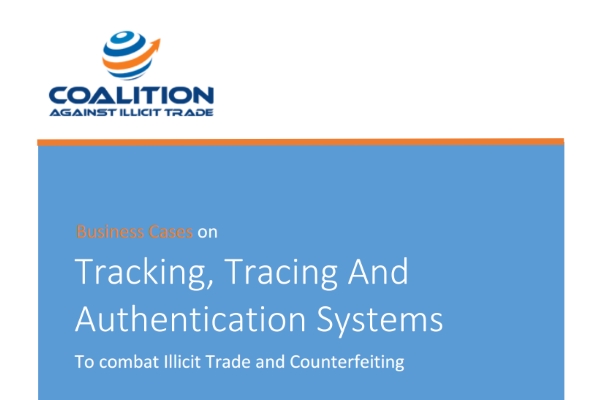
The Coalition Against Illicit Trade (CAIT), today published its latest white paper that brings together the expertise and research of its members to examine practical business cases in different manufacturing sectors and across the supply chain.
The paper identifies recognised leaders in the application of systems and solutions for Track & Trace and Authentication (TT&A), systems used to find out where a product is in a supply chain (Track), where it has been (Trace) and if it is genuine or fake (Authentication).
To achieve these three goals companies utilise a wide variety of different technical solutions and systems, dependent on their requirements. CAIT has attempted in its paper to collate those that best meet these needs across some of the industries most frequently affected by illicit trade including: pharmaceuticals, medical devices, food & agriculture, wine & spirits, tobacco, pesticides, textiles, jewellery and automotive, aeronautics and electronics.
For each business case presented, the paper analyses the industrial and technical requirements and conditions for improving TT&A and highlights inefficiencies likely to occur should such requirements not be met. Benefits to business, consumers and the public authorities are mapped out and the requirements for effective implementation and good governance.
Without having the ambition of being exhaustive in covering multiple business initiatives underway in this area, CAIT’s report offers a work in progress that aims to encourage the collection and the sharing of business applications which can demonstrate the benefits for companies and public authorities gained through improved TT&A performance.
In previous papers, the coalition has addressed the role of new technologies in fighting illicit trade , and has looked at the guiding principles for a cost effective implementation of cross-border tracking, tracing and authentication systems. This paper is designed to move the conversation on, and demonstrate in practice how technology improves Tracking, Tracing and Authentication (TT&A) processes and outcomes in practice.
The paper was launched at the Centre for European Policy Studies (CEPS) seminar “Combating Counterfeiting and Illicit Trade. Business Practices and Policy Direction on ICT Traceability & Authentication”. Speaking at the event, founder member of CAIT, Craig Stobie, Director Global Sector Management at printers Domino, said:
“CAIT is designed to bring together and share expertise amongst Europe’s leading providers of IT based solutions for tracking, tracing and authentication. In this paper we have collated our collective experience and that of others to robustly examine what makes a system work and the benefits it can bring.
Our conclusions reiterate our coalition’s principles that effectively fighting the illicit trade relies on the authorities defining basic standards and then supporting, or at least encouraging, producers and supply chain operators to select the most appropriate technologies to fulfil TT&A standards, which best fit their respective industrial environments. Furthermore, any legislative framework at the national or international levels must be designed around the promotion of overarching technological architectures, which would enable interoperability across technological platforms, geographies and industry sectors.”
 | back to top
| back to top






